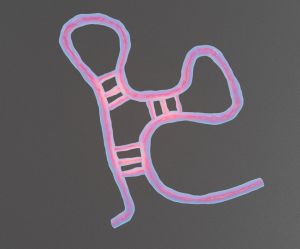
Source: Love Employee / Getty
WEST LAFAYETTE, Ind.–A professor at Purdue University says there is a way to slow cancer growth.
Andrea Kasinski, Deputy Director of the Institute for Cancer Research at Purdue University, says both her and her staff are working on what’s called microRNA.
“We think of microRNAs as the breaks. They prevent other things from being expressed. When you lose one of these microRNAs, you can imagine that all of these other things that shouldn’t be around and if these other things cause disease, then you’ve just lost the breaks on that system,” said Kasinski.
In her laboratory, Kasinski says she is trying to restore those microRNAs.
“We can do that because they are small and easy to work with and not subject to all of these other concerns with these larger RNAs,” said Kasinski.
Kasinski says cancer is driven by so many different genes.
“So if a single microRNA can modulate all of those genes and bring them down collectively, then we have this enormous ability to overcome all of the things that cancer becomes addicted to,” said Kasinski.
That’s why she says restoring the RNAs is the key.
“Through restoring some of these smaller RNAs, we can revert that process back to the normal situation and preventing the protein products from being made and reducing their levels so they can no longer promote disease,” said Kasinski.
Kasinski says this patent-pending therapy could be effective on its own and in combination with existing drugs when used against cancers that have built drug resistance.













